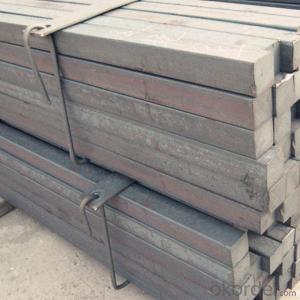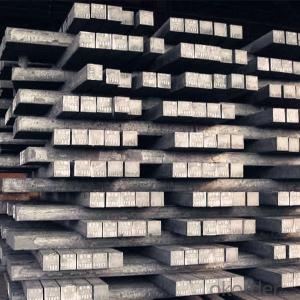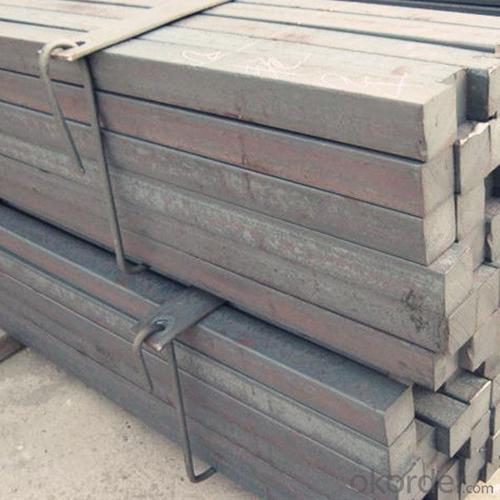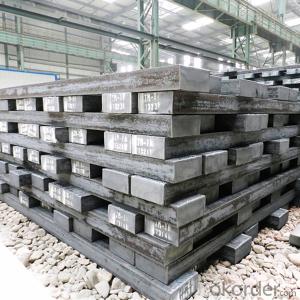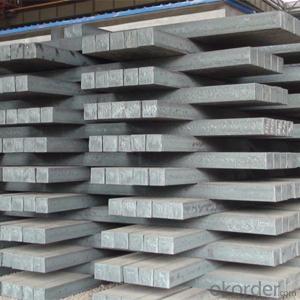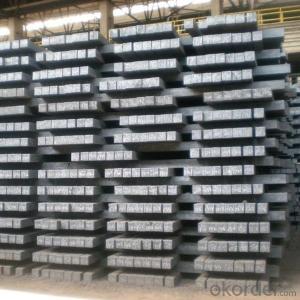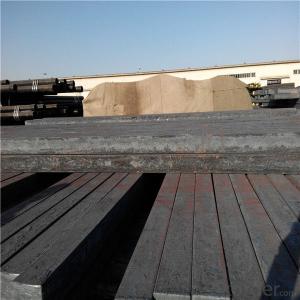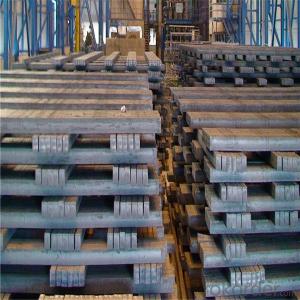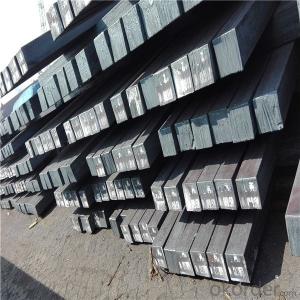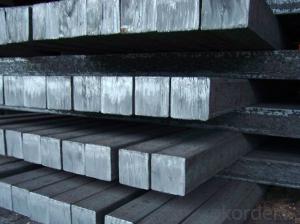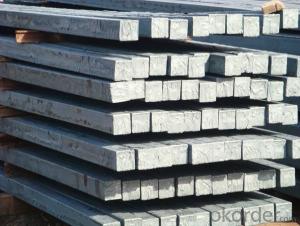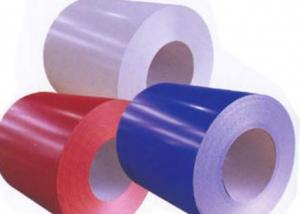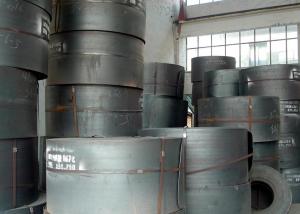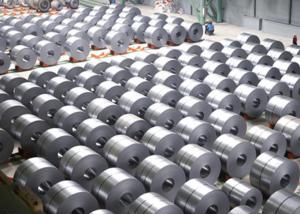Carbon steel billets, Alloy steel billets, Square steel billets
- Loading Port:
- China main port
- Payment Terms:
- TT OR LC
- Min Order Qty:
- 23 m.t.
- Supply Capability:
- 100000 m.t./month
OKorder Service Pledge
OKorder Financial Service
You Might Also Like
Specification
Carbon steel billets, Alloy steel billets, Square steel billets
Specifications:
Type | Steel billet / Square steel/ Steel square bar |
Standard grade | 3SP/PS, 5SP/PS, Q195, Q235, Q255, Q275, 20MnSi etc. |
MOQ | 1000 MT |
Technique | Hot rolled, Continuous casting and rolling |
Size | 50*50mm ~ 160*160mm |
Length | 3~12m |
Packing | Loose packing, in bundle |
Payment terms | T/T, L/C at sight, Usance L/C |
Trade terms | EXW, FOB, CFR, CIF |
Trans terms | FIO, FILO, FLT |
Inspection | Third party inspection accepted |
Delivery time | 15-30 days, according to the quantity |
Applications | carbon structural steel, wire rod, rod, deformed bars, profile steel, machine parts, and steel moulds etc . |
Note | Customized service is available (for sizes,length and chemical components etc.). |
Steel Grade:
Steel Grade | C % | Mn % | Si % | S % | P % |
Q195 | 0.06-0.12 | 0.25-0.50 | 0.30 Max | 0.04 Max. | 0.04 Max. |
Q235 | 0.12-0.22 | 0.30-0.60 | 0.30 Max. | 0.04 Max. | 0.04 Max. |
Q255 | 0.18-0.28 | 0.40-0.70 | 0.30 Max. | 0.045 Max. | 0.050 Max. |
Q275 | 0.27-0.38 | 0.50-0.80 | 0.30 Max. | 0.045 Max. | 0.045 Max. |
3SP | 0.14-0.22 | 0.40-0.85 | 0.15-0.30 | 0.050 Max. | 0.040 Max. |
5SP | 0.28-0.37 | 0.50-1.00 | 0.15-0.30 | 0.050 Max. | 0.040 Max. |
20MnSi | 0.17-0.25 | 1.00-1.60 | 0.40-0.80 | 0.050 Max. | 0.050 Max. |
Product Picture:
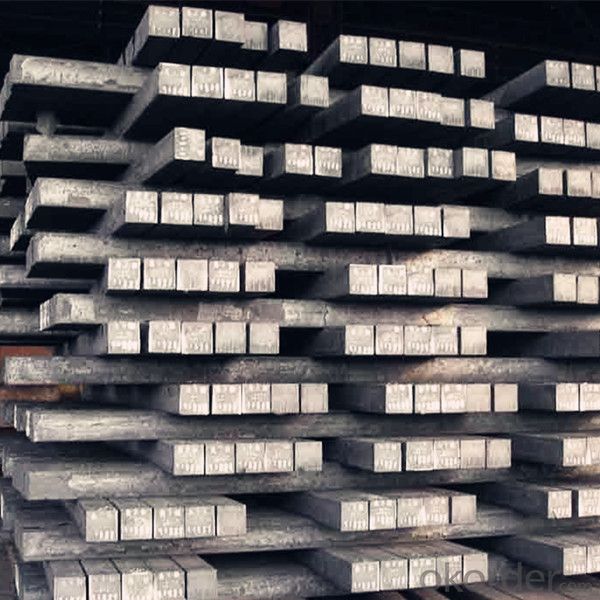
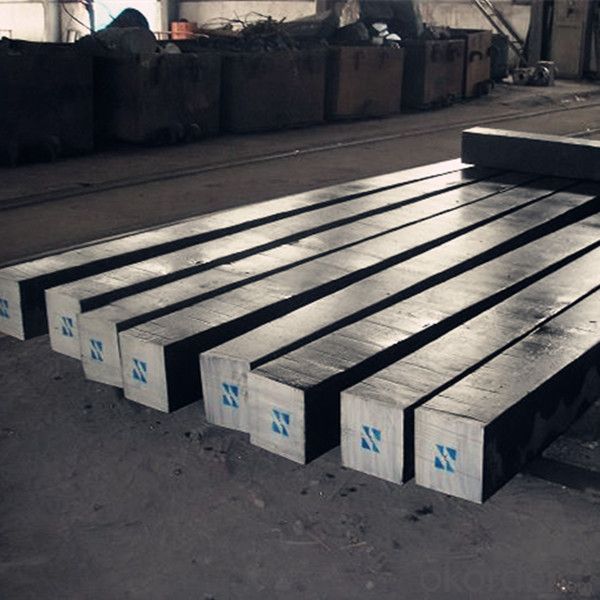
- Q: What are the common uses of steel in the aerospace industry?
- Steel is commonly used in the aerospace industry for various applications such as aircraft structures, engine components, landing gears, and fasteners. Its high strength-to-weight ratio, durability, and resistance to extreme temperatures make it ideal for ensuring safety and performance in aircraft design.
- Q: What are the different types of steel products used in the manufacturing of musical instruments?
- There are various types of steel products used in the manufacturing of musical instruments, including stainless steel for strings, steel alloys for instrument bodies, and steel springs for mechanical components such as keys and pedals.
- Q: How are steel tubes used in the fabrication of hydraulic systems?
- Steel tubes are used in the fabrication of hydraulic systems as they provide a strong and durable material that can withstand high pressure and harsh conditions. These tubes are commonly used to transport hydraulic fluids, such as oil or water, from one component to another within the system. They ensure efficient and reliable flow of fluids, maintaining the system's functionality and performance. Additionally, steel tubes can be bent, cut, and welded into various shapes and sizes, allowing for customization and easy installation in hydraulic systems.
- Q: How is steel used in the manufacturing of water treatment systems?
- Steel is commonly used in the manufacturing of water treatment systems due to its durability, strength, and resistance to corrosion. It is often used to construct tanks, pipes, and other components that come into contact with water, ensuring the system's longevity and reliability.
- Q: What are the different types of steel bars and rods available?
- There are various types of steel bars and rods available, including mild steel bars, deformed steel bars, stainless steel bars, alloy steel bars, and carbon steel rods. These different types of steel bars and rods have specific properties and are used for various applications in construction, manufacturing, and engineering industries.
- Q: What are the applications of alloy steel in manufacturing?
- Alloy steel is widely used in manufacturing due to its exceptional properties and versatility. It is utilized in various applications such as the production of machinery, automotive parts, tools, construction materials, and even in the aerospace industry. The high strength, durability, and resistance to corrosion and wear make alloy steel ideal for manufacturing components that require high tensile strength, toughness, and the ability to withstand harsh environments. Additionally, alloy steel can be easily machined, welded, and heat-treated, allowing for greater flexibility in the manufacturing process.
- Q: How is steel used in the production of kitchen utensils and cookware?
- Steel is commonly used in the production of kitchen utensils and cookware due to its durability, heat conductivity, and resistance to corrosion. It is often used as the primary material for pots, pans, knives, and other kitchen tools, ensuring long-lasting performance and even heat distribution during cooking.
- Q: What are the common types of steel products used in the mining industry?
- Some common types of steel products used in the mining industry include steel pipes, steel plates, steel beams, steel bars, and steel wire. These products are used for various purposes such as constructing infrastructure, creating support systems, and manufacturing equipment for mining operations.
- Q: What are the different grades of steel and their applications?
- There are several different grades of steel, each with its own unique properties and applications. Some common grades include carbon steel, stainless steel, and alloy steel. Carbon steel is the most commonly used grade and is suitable for a wide range of applications, including construction, automotive manufacturing, and general engineering. Stainless steel is known for its corrosion resistance and is often used in the production of kitchen utensils, medical equipment, and architectural structures. Alloy steel, on the other hand, is a combination of different elements to enhance its strength, hardness, and durability, making it ideal for applications such as aerospace, oil and gas, and automotive components.
- Q: How do steel products contribute to sustainability and environmental protection?
- Steel products contribute to sustainability and environmental protection in several ways. Firstly, steel is highly durable and long-lasting, reducing the need for frequent replacement and minimizing waste generation. Additionally, steel is 100% recyclable and can be reused without any loss in quality or performance, leading to significant energy savings and reduced greenhouse gas emissions compared to producing new steel. Steel also has a high strength-to-weight ratio, enabling the construction of lighter and more fuel-efficient vehicles and structures. Furthermore, steel is resistant to fire, corrosion, and pests, making it a reliable and safe material choice. Overall, steel products promote sustainability by conserving resources, reducing waste, and minimizing environmental impacts throughout their lifecycle.
Send your message to us
Carbon steel billets, Alloy steel billets, Square steel billets
- Loading Port:
- China main port
- Payment Terms:
- TT OR LC
- Min Order Qty:
- 23 m.t.
- Supply Capability:
- 100000 m.t./month
OKorder Service Pledge
OKorder Financial Service
Similar products
Hot products
Hot Searches
Related keywords
